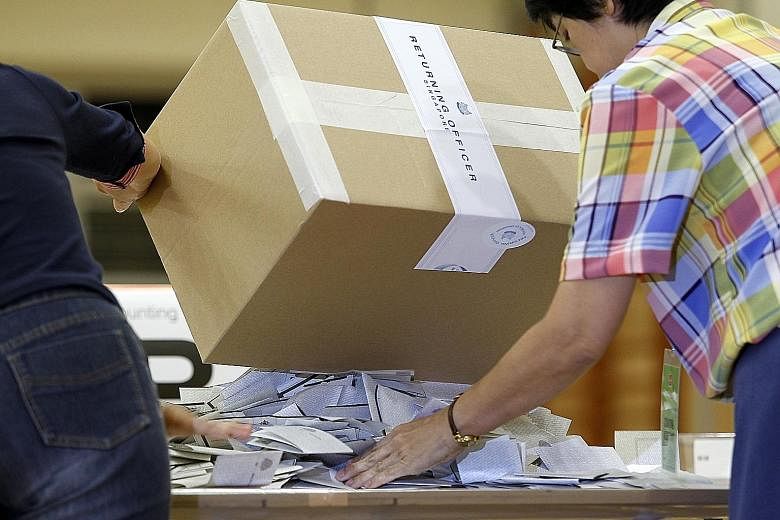Parliament passed a new law yesterday that will make the running of elections more efficient, spelling out, among other things, what to do when ballot papers are lost or destroyed.
Other key changes include allowing electoral candidates to use electronic fund transfer systems to pay their election deposits, with cash payment allowed only if the Returning Officer gives it the nod.
Wrapping up the debate on the Parliamentary Elections (Amendment) Bill, Trade and Industry Minister Chan Chun Sing said the changes "improve the administration of parliamentary elections while ensuring the secrecy of the vote and the integrity of the election process".
Mr Chan, who was taking the Bill through on behalf of the Prime Minister, said: "They are part of the continuous improvements to strengthen election administration and to improve services to voters and candidates."
Six members of the House spoke on the Bill.
While there have been no incidents in past elections of ballot boxes being lost or damaged before the votes could be counted, Mr Chan said the new law will "ensure the integrity of the election process" by clearly laying out the steps to take.
In such an occurrence, election officials can abandon the vote count for the affected polling station, and should the number of votes at the station be enough to sway the electoral result for that constituency, the voters must go through a fresh poll.
Workers' Party chairman Sylvia Lim (Aljunied GRC) asked whether cash was allowed only when electronic transfers failed, adding that the new rule seems to "set another barrier" for candidates who may be raising money right up to the very last minute.
Mr Chan replied that the hope is for e-payment to be the primary method, but in extenuating circumstances, the Returning Officer has the discretion to allow cash.
The new legislation will also simplify the formula used to compute a candidate's election deposit, which is to be based on an MP's monthly allowance, rounded to the nearest $500. With this, the deposit will be $13,500, as the current fixed monthly allowance is $13,750. The sum is lower than the current deposit, which is set at 8 per cent of an MP's total annual allowance. This meant that in the 2015 General Election, the deposit was $14,500 for each candidate.
Mr Gan Thiam Poh (Ang Mo Kio GRC) asked if the required deposit could be reduced further. Mr Chan replied that the purpose of the deposit is to ensure that only those who are serious in contesting an election will step forward. He agreed with Mr Gan that the amount should not be at such a high level that it becomes a barrier to entry. A balance should be struck, he added.
Mr Murali Pillai (Bukit Batok) raised concerns of accountability as the new law removes the need for candidates to provide supporting documents, such as bills and receipts, when submitting their election expenses.
Mr Chan said the process for the public to inspect the expenses remains and candidates are also required to keep the supporting documents for one year, during which the Returning Officer may ask for them for checking purposes.


